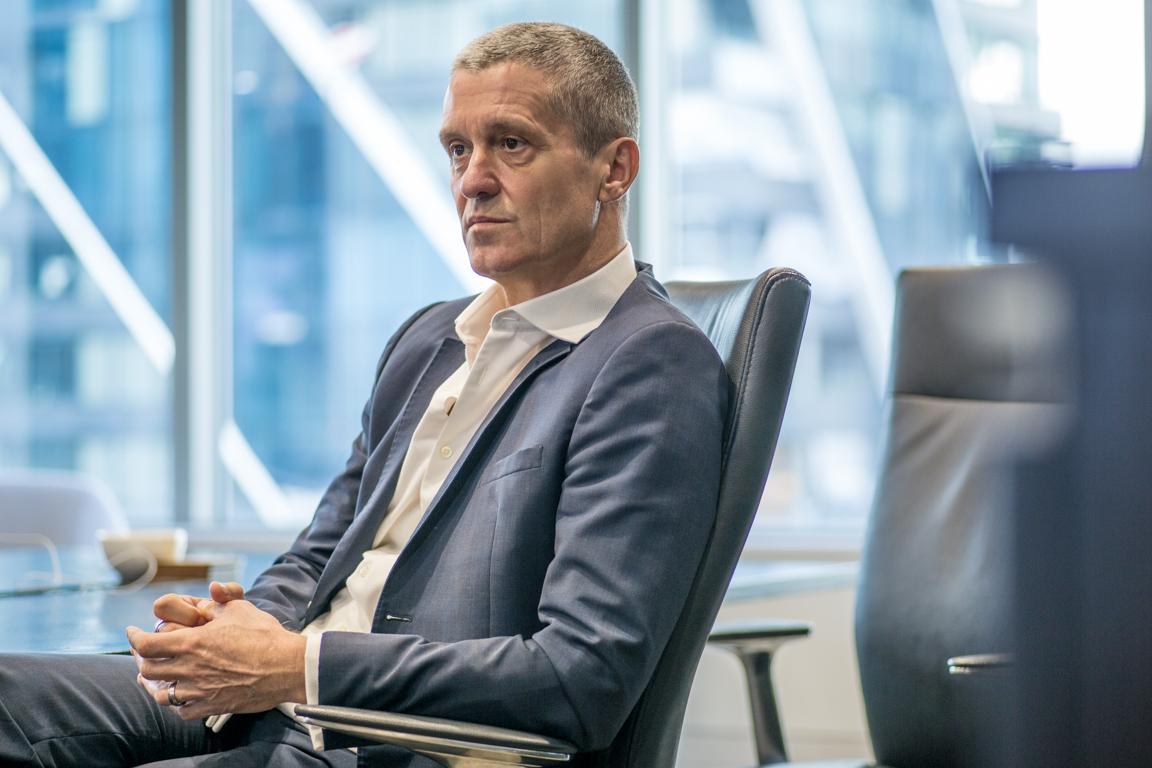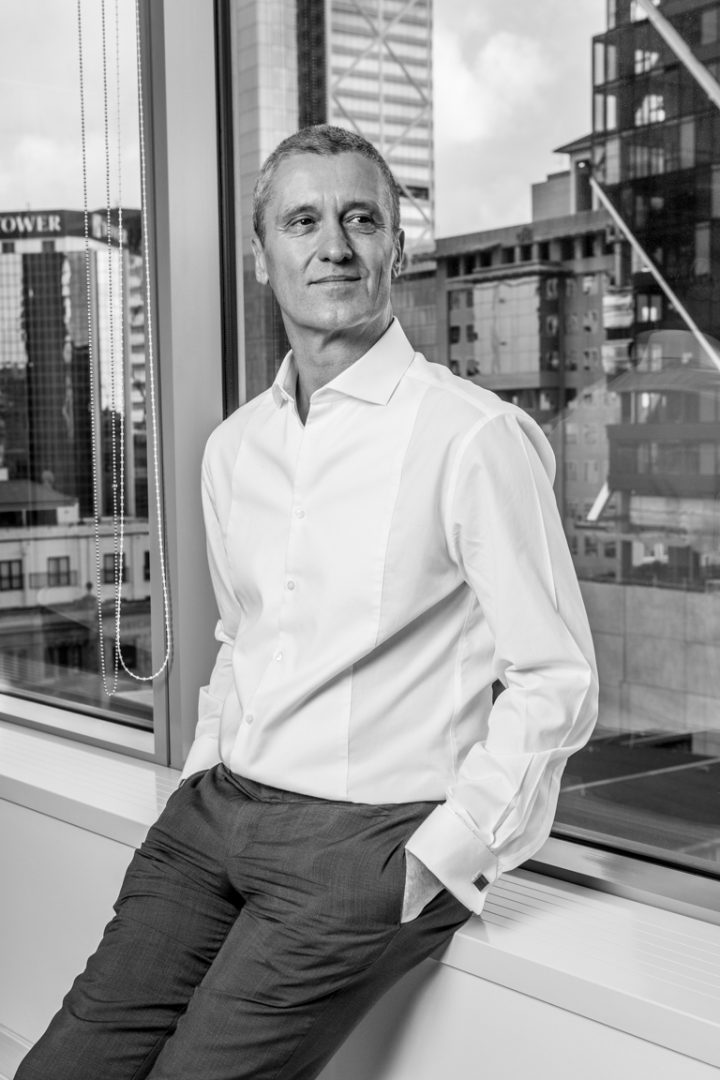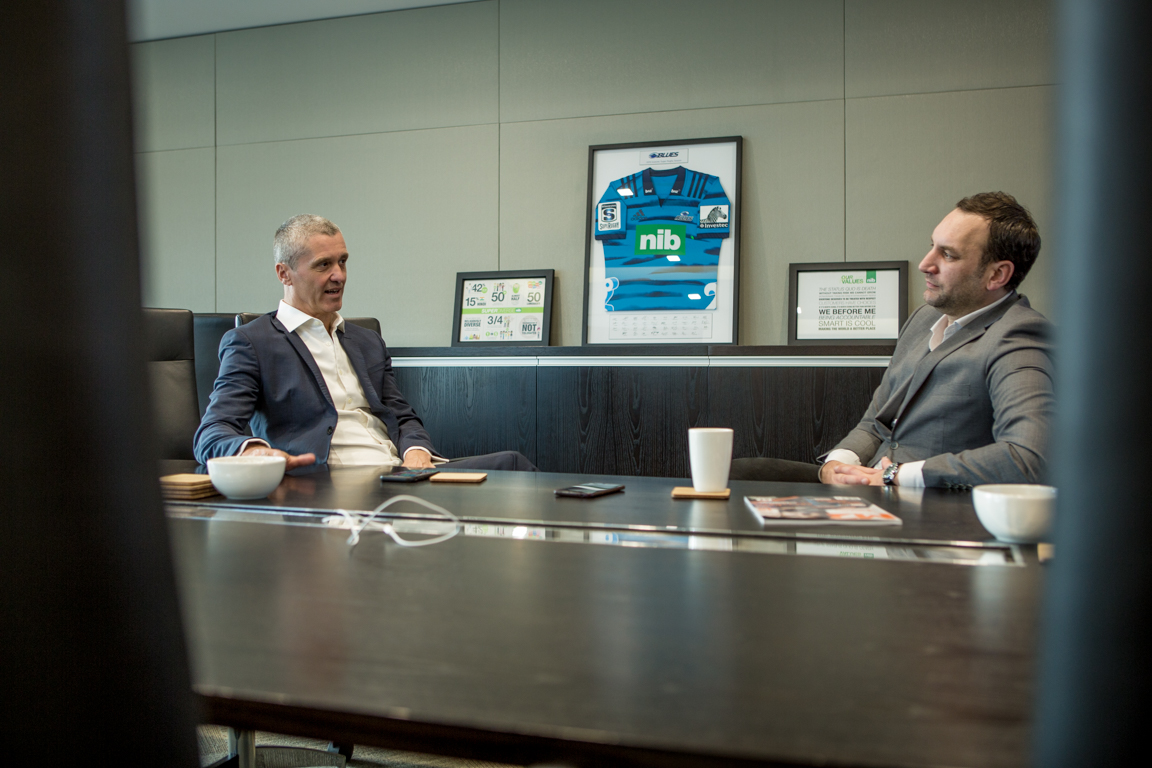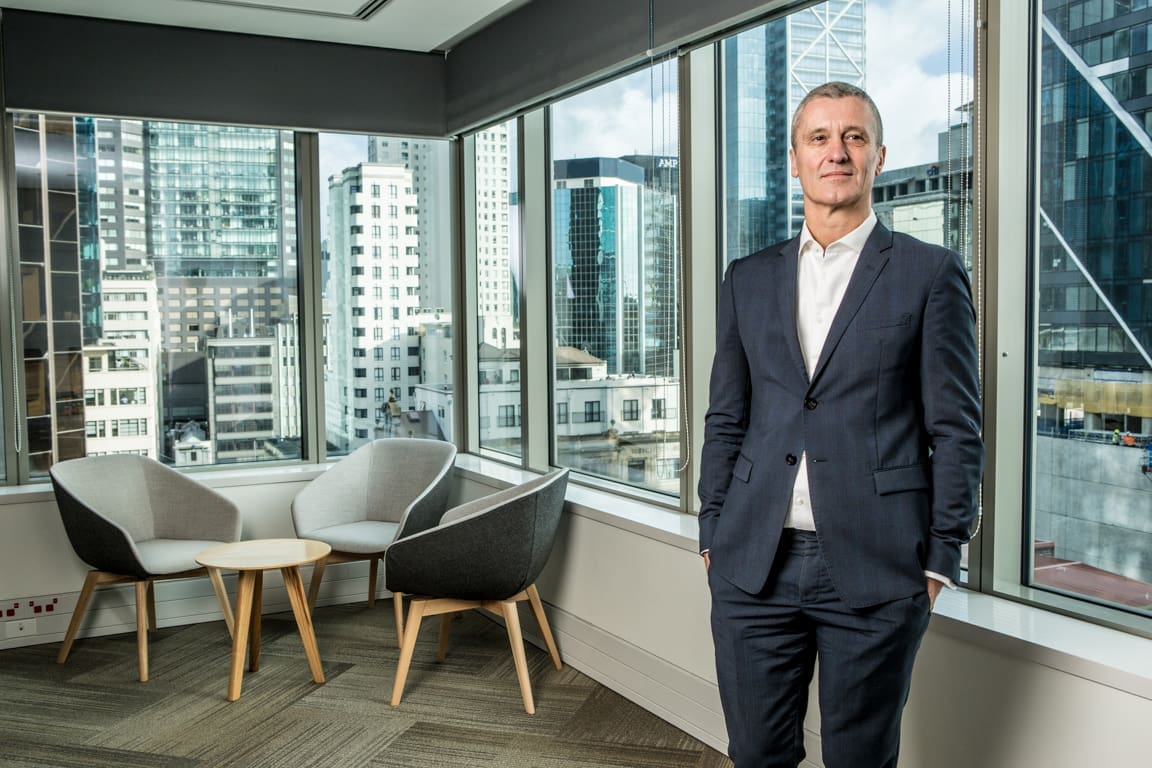The All-Rounder
If you’re the sort of person to get humbled by other people’s over achievements, you probably don’t want to read too far in Justin Vaughan’s background. A former New Zealand cricketer who played six tests and 18 one day internationals, he was also CEO of New Zealand Cricket from 2007-2011.
He has held leadership roles in the healthcare sector, including CEO of Medical Technology company BRAINZ Instruments, Aquisition and Integration Manager of Mercyascot Hospital, Leader of Price waterhouse coopers’ New Zealand Health Consulting Practice, as well as positions in Pharmaceuticals in the UK.
Since 2013, he has been group executive – benefits and provider relations at NIB Group, and is responsible for managing the company’s relationship with its network of ancillary and medical providers and their associations.
He hold an MBA from the University of Otago, a diploma of Pharamceutical medicine UK, BHB, and an MBCHB from the University of Auckland. This makes him a doctor of Medicine as if the aforementioned wasn’t enough.
Is there an average day for you?
I have my set routines, which comes back to having a health background. I take that pretty seriously, so I usually start the day with a meditation session. I live in a central Sydney suburb called Glebe, which is lovely, because I get to walk to work and can have the flexibility of working from home if I have videoconference meetings that day.
I’m a recent convert of Crossfit. I go to the local Crossfit box in the evenings, which is a lovely little community. In Glebe, being in such a central area, there are too many choices for places to eat, so my cooking skills have been slightly shelved for the time being.
There’s a lot of travel in my role and it has its own demands particularly physically with time zone changes, sleep changes, and sleeping in different places. I’ve been trying to monitor that a lot more closely recently.

I’m a new convert to wearables. I wear this thing called an Oura ring. You can see how you sleep every night and it gives you a readiness index, which takes your resting heart rate, your heart rate variability and compares your different sleep stages throughout the night. You can see how much sleep you get, and it shows when you’ve had deep sleep, what your REM sleep is like, and all sorts of stuff. I’m trying to get seven hours minimum a night.
I’m into monitoring that at the moment because I think sleep is probably one of the most undervalued health elements. People look at diet, exercise and lifestyle choices, like alcohol and not smoking as super important, but getting enough sleep is probably one of the most neglected areas.
How does your interest with health crossover into the insurance world?
It can provide ways to engage with people around their health. I think the biggest challenge that the healthcare system faces is helping people to be more empowered and more in charge of their own healthcare. The healthcare system can be very complicated and people can feel a bit impotent in the face of that.
Some of the wearable devices available these days allow people to take more control and enable them to see the real-time feedback such as, ‘Okay, last night I had one too many glasses of wine and my sleep suffered.’
Then people can take action and say, ‘Okay, I know now that I don’t need to drink this’, or ‘I need to have my dinner earlier.’ Those things can now actually enable people. People are getting a lot more information online around healthcare issues.
Is there any potential for some of that data to go back to the industry and for people to get benefits out of that?
The simple answer is yes. Rewarding people for healthy behaviours is one way that the likes of insurers can help individuals lead healthier lives, which is what nib is about. It’s about trying to get people healthier.
We’re trying to find ways that will encourage the right behaviours. In the future, we might look at rewarding people for getting in 10,000 steps, eating healthier or hitting your health goals. If you know that you’ve had a problem with stress and anxiety, we can reward you when you complete a daily meditation session through your meditation app. The data shows that you’ve performed those particular health behaviours and nib would say, ‘That’s great, here’s some reward points.’ You get that virtuous, positive feedback. Those are the areas that we’re pushing hard on.

We also had to overcome the issue of people being constantly distracted on their devices. The anxiety that creates does not result in good health outcomes. You’ve got to have that balance right. I’ve always been hesitant around becoming too addicted to wearables and data, because I know I can get sucked into that just as much as anyone else can.
How do you describe to people what you do? What’s your mandate?
My overarching mandate is to try and get nib members as healthy as possible. And if they do have healthcare needs, to provide them with access to high quality and affordable healthcare services.
That ranges from over a million insured Australians, and over 200,000 insured Kiwis. We’ve got little subsets, like the Ngāti Whātua Ōrākei population health initiative in Auckland, where we’ve got an overarching mandate to help the Iwi, which is an enormous opportunity. It’s a real privilege to work in Māori health. If we can show the value that we’re giving to that particular group of individuals, that will demonstrate some of the value that a different mindset can bring to health.
What sort of tools do you have at your disposal to be able to shift some of those mindsets?
There’s no real secret sauce around those. We’re trying to do something differently. We’re jumping onboard some of the new healthcare initiatives around the marketplace. For example, we’ve partnered with Zoom Pharmacy, a provider which enables people to get prescriptions delivered to their door. It takes out some of the friction in the healthcare system, stops queuing and waiting and makes it as easy as possible to get your healthcare.
Whether it’s medication delivery or telemedicine or other avenues, with digital tech, it should be simple. Healthcare has been pretty slow at taking on some of those innovations.
The big problem in health is there’s always been information asymmetry between the consumers, i.e. the patients, and the providers. For example, it’s so easy now to review and to know what you want inside the travel industry or retail industry, with TripAdvisor and the like – but no so much in the healthcare industry.
We’re working to address that, and while that information asymmetry isn’t going to go away easily, and patients aren’t going to become as knowledgeable as specialists or doctors, they’ll become more aware of what’s important. Our role is to act as a curator and navigator through that process to reduce that information gap.
We want to enable easy access and provide our members with good quality information so they know what questions to ask when they go and see a specialist. We want to be a part of inspiring healthy living, rather than just telling our customers ‘Here’s what happens when you’re sick.’ That’s the easy stuff. The harder stuff is to say, ‘Okay, how can I help all of our members on a daily basis to live a little bit healthier?’
We should be there each day to send reminders to say ‘Hey, you’ve been particularly inactive today’, or ‘Look, you had a bad night’s sleep, do you need to dial it back on some of your commitments?’ I think that’s evolving.
We want to be the partner that members will turn to for healthier advice and be there to enable them if they want to take a healthier direction in their life. We want to be there to guide them on that.

Do you notice a difference between New Zealanders and Australians in terms of our approach to health?
Kiwis naturally look to the outdoors more. Australians are used to bigger, urban environments. Whereas, even in Auckland, you can get out pretty quickly.
Within a big city like Sydney, there are places where people find it difficult to get out and so there is a different mentality around the benefits of outdoor living and outdoor spaces.
Even though Australia is blessed with great geography, I think people can often get trapped inside cities more than they can in a place like Auckland. In general, people’s attitudes are pretty similar. All the healthcare issues are similar across the two countries.
What about men and women?
There’s still a segment of men who are unwilling to talk about certain physical and more emotional areas than women; such as issues around mental health.
It’s great that we’ve got ambassadors like John Kirwan pushing, for men in particular, to be more open about their challenges with anxiety and depression. I think that’s really positive.
I also think there’s a renaissance within certain groups of the population. It seems like younger males, for example, tend to be a lot more open about their struggles. I’m sure that there are still segments where it’s difficult to talk about it. I don’t think it’s easy for anyone to talk about mental health issues.
It’s also still a struggle for men to take maintenance and screening the right way.
How many men would know that they need to get their cholesterol checked or their blood pressure checked as they get older? It’s actually important to have that ongoing relationship with their GP and to make sure they’re getting checks and screenings as often as they should do.
That’s our message and it still needs to be reinforced. Some people are really good at it, but there’s still a segment who just take their health for granted – until it’s too late.
Once you’ve started on the slope towards heart disease or pre-diabetes, you’ve got to prevent it. That’s my one personal objective, to try and delay the onset of any of these chronic diseases as late as possible.
Can you talk about the impact that meditation has on your life?
I was introduced to it when I read an amazing book called The Tibetan Book of Living and Dying about 20 years ago. Through sport, I was exposed to sports psychology and the importance of clearing your mind to be able to obtain peak performance. But after reading this Tibetan Buddhist book, I started a regular meditation practice.
I’ve been to a few retreats and it’s an incredibly grounding habit that I’ve got into. It’s part of my morning routine that just gets me set for the day. I wouldn’t be without it.
Particularly with the travel that I do, having a full on job and all the stress of life, just having that 15-20 minutes at the start of the day is something I would never go away from.
I can’t say I’m brilliant and manage it every day, but four or five times a week I start my day with meditation. It’s given me a degree of stability that I probably didn’t have before. I think it helps provide resilience. Sometimes it’s hard to quantify the benefits, but I know I’m far better off.
You have quite a varied CV. Was there a plan?
No. I’d love to say there was a plan. You can look backwards and sometimes you can draw the dots only by looking retrospectively. It was really more just opportunities that presented themselves and they seemed interesting.
I was a bit curious around new experiences and new things and my path has led me to places I couldn’t have predicted.
Photos by Damien Van Der Vlist.

